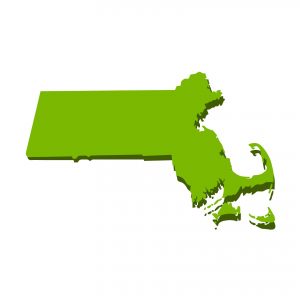To solve pressing climate-related challenges including droughts, forest fires, sea level rise and others, the nation needs a workforce prepared to address those challenges. The clean energy sector, in particular, helps provide solutions for the future of the planet, and the economic case for expanded investment in clean energy jobs is clear: in 2022, clean energy jobs grew in every state and, with a national 3.9% job growth, outpaced national employment growth.1 To prepare young people for the future of this emerging economy, states and local education agencies are turning to Career Technical Education (CTE) to develop both the technical and academic skills needed while providing specialized training to ensure learners are environmentally aware and can enter into environmentally-focused careers.
 Some states focus on a broad strokes approach that expands access to the sector as a whole. Last year, Massachusetts created a Clean Energy Innovation Career Pathway, to “inspire the next generation of clean energy experts in Massachusetts by providing students experiential learning opportunities in the field.” In September 2023, six high schools began piloting this pathway. The state also announced multiple financial investments in the development of training opportunities, including a $2.5 million grant to Benjamin Franklin Cummings Institute of Technology to create their Center for Energy Efficiency and the Trades and achieve a goal of connecting 50% of graduates to climate-connected occupations by 2026.
Some states focus on a broad strokes approach that expands access to the sector as a whole. Last year, Massachusetts created a Clean Energy Innovation Career Pathway, to “inspire the next generation of clean energy experts in Massachusetts by providing students experiential learning opportunities in the field.” In September 2023, six high schools began piloting this pathway. The state also announced multiple financial investments in the development of training opportunities, including a $2.5 million grant to Benjamin Franklin Cummings Institute of Technology to create their Center for Energy Efficiency and the Trades and achieve a goal of connecting 50% of graduates to climate-connected occupations by 2026.
 Other states developed more focused career-specific pathways in close collaboration with industry partners. Georgia, for example, developed an electric vehicle career pathway in response to a $5 billion investment from electric vehicle manufacturer Rivian, who seeks to hire 7,500 workers across four counties in Georgia. This type of approach reveals the importance of employer partners who can demonstrate and speak to the value of CTE training programs for the clean energy sector.
Other states developed more focused career-specific pathways in close collaboration with industry partners. Georgia, for example, developed an electric vehicle career pathway in response to a $5 billion investment from electric vehicle manufacturer Rivian, who seeks to hire 7,500 workers across four counties in Georgia. This type of approach reveals the importance of employer partners who can demonstrate and speak to the value of CTE training programs for the clean energy sector.
Local education agencies are also adopting hyperlocal programs in response to hyperlocal need. The Urban  Assembly New York Harbor School focuses on preparing learners specifically for maritime careers, and is focused heavily on careers centered on the clean workforce, including in marine biology research, aquaculture, and ocean technologies, among other pathways. They have partnered with the Billion Oyster Project to provide learners with hands-on experiences and direct connection to mentors in the industry, in turn developing young practitioners eager to engage in this space. The Billion Oyster Project reports engaging with over 11,000 New York City students since 2014.
Assembly New York Harbor School focuses on preparing learners specifically for maritime careers, and is focused heavily on careers centered on the clean workforce, including in marine biology research, aquaculture, and ocean technologies, among other pathways. They have partnered with the Billion Oyster Project to provide learners with hands-on experiences and direct connection to mentors in the industry, in turn developing young practitioners eager to engage in this space. The Billion Oyster Project reports engaging with over 11,000 New York City students since 2014.
Environmental education, climate literacy, and exposure to workforce opportunity are vital to recruitment and retention of young people in the clean energy space. To prepare for the economic future of this emerging space, high quality and equitable CTE needs to remain at the forefront to ensure that all young people can find, decide on and engage in these types of future careers.
Advance CTE is currently doing work in environmental education by partnering with the Delaware Department of Education to explore the future environmental literacy competencies within and across Delaware Pathways. Read about the project
Read more about policies enacted in CTE Clean Energy and Renewables and other CTE-related policy trends of 2023 in State Policies Impacting CTE: 2023 Year in Review.
Dan Hinderliter, associate director, state policy


 Developing environmental literacy in elementary, middle and high school is essential to prepare learners for an evolving economy and to equip them with the skills and experiences they need to tackle urgent environmental challenges, both globally and in their own communities. By 2030, it is estimated that 24 million green jobs will be created in industries ranging from energy to finance and transportation.
Developing environmental literacy in elementary, middle and high school is essential to prepare learners for an evolving economy and to equip them with the skills and experiences they need to tackle urgent environmental challenges, both globally and in their own communities. By 2030, it is estimated that 24 million green jobs will be created in industries ranging from energy to finance and transportation.